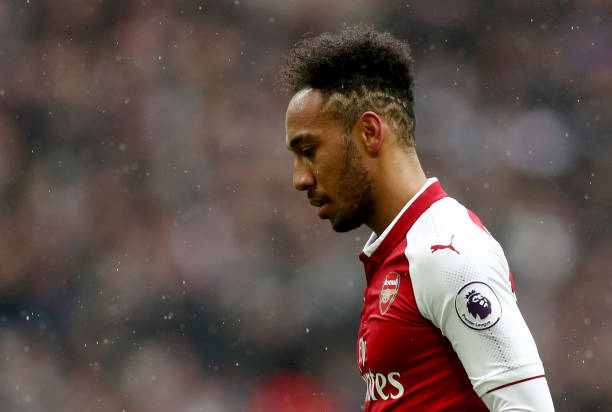On Thursday, Arsenal progressed to the quarter-finals of the Europa League, but thanks to UEFA’s cup-tied rule, Pierre-Emerick Aubameyang won’t be able to take part.
Thanks to his time with Borussia Dortmund, Aubameyang is cup-tied for the rest of the season, despite the German club’s exit from the competition.
Personally I think that’s a great shame, and not just because I’m an Arsenal fan. First I’m going to explain what the rule is and why it’s in place, then why I think we should get rid of it.
What is the cup-tied rule?
In UEFA competition, any player who plays in the Champions League or the Europa League is ‘cup-tied’ for the rest of the campaign. That means they can only represent the club they first played for that season, with one exception.
The exception is that every club can register one cup-tied player per season, as long as that player’s club hasn’t played in – or dropped down into – the same competition as you.
For example, Henrikh Mkhitaryan played in the Champions League for Manchester United, so he can’t play for another Champions League club. However, he can play for Arsenal, because Arsenal are in the Europa League. Similarly, Alexis Sanchez couldn’t play for another Europa League club, but he could play for Manchester United.
As mentioned, there is a strict limit of one per season, so Arsenal couldn’t sign another Champions League player and play him as well.
That would’ve ruled out playing both Mkhitaryan and Pierre-Emerick Aubameyang. Unfortunately Aubameyang was already ineligible anyway, because Borussia Dortmund dropped down into the Europa League.
Why is this rule in place?
The problem UEFA are trying to address is a situation where a rich club buys up all their rival’s best players. Without the rule, Real Madrid could see Edinson Cavani having a great season with PSG, buy him and simultaneously weaken PSG whilst also strengthening themselves.
As another example, Arsenal could see Borussia Dortmund heading for the Europa League, and buy Pierre-Emerick Aubameyang so they don’t have to play against him, whilst also strengthening their own attack.
The “one per season” part of the rule is another way to limit clubs from changing their squads too heavily.
A team like Arsenal can address one problem area in their squad, but not the entire team. That keeps things a bit more level with the smaller sides who can’t afford as many changes.
Why don’t I agree with the rule?
The main problem I have with the rule is that it doesn’t stop players moving clubs. Aubameyang still came to Arsenal, even though he couldn’t play in the Europa League. Mkhitaryan still joined even though he was ineligible for the League Cup.
If the rule doesn’t deter clubs from buying, then the likes of Borussia Dortmund lose their best players anyway. The only difference is that now Aubameyang doesn’t get to play for anyone.
Arsenal fans can’t watch him play, nor can neutral supporters. The TV companies can’t entice viewers with his performances, and the advertising companies can’t use him to market their products.
The player himself loses half a season of European football sitting on the sidelines.
The only ‘winners’ are the clubs who might face Arsenal. Even then, they might make more money selling tickets if their opponent had a full strength side.
The Milan game would’ve been even more popular with Aubameyang returning to face his former club, and Arsenal knocked the Serie A side out anyway. Clearly his absence didn’t help them much. Perhaps his presence would’ve fired them up to fight a bit harder, who knows?
It’s not as if the clubs involved can’t take it on themselves to prevent a transfer. If Dortmund really didn’t want Aubameyang playing in the Europa League for Arsenal, they could’ve just not sold him to Arsenal.
They could’ve commanded an even higher price, as signing the player would be more appealing.
The market already helps solve the problem, without the need for an extra rule.
Hopefully UEFA reconsider the regulations after more cases like this, if only to relax them slightly. For now, Aubameyang will have to watch from the stands.
